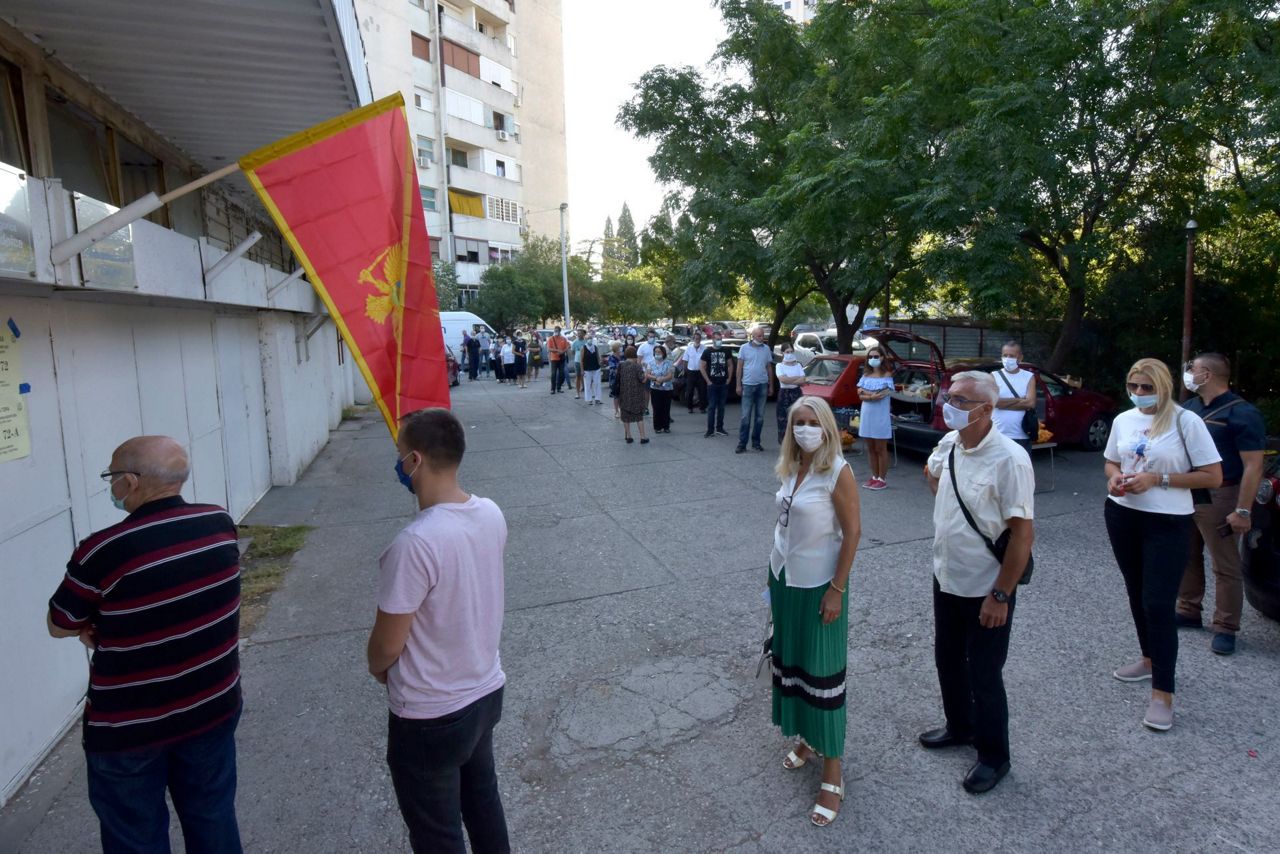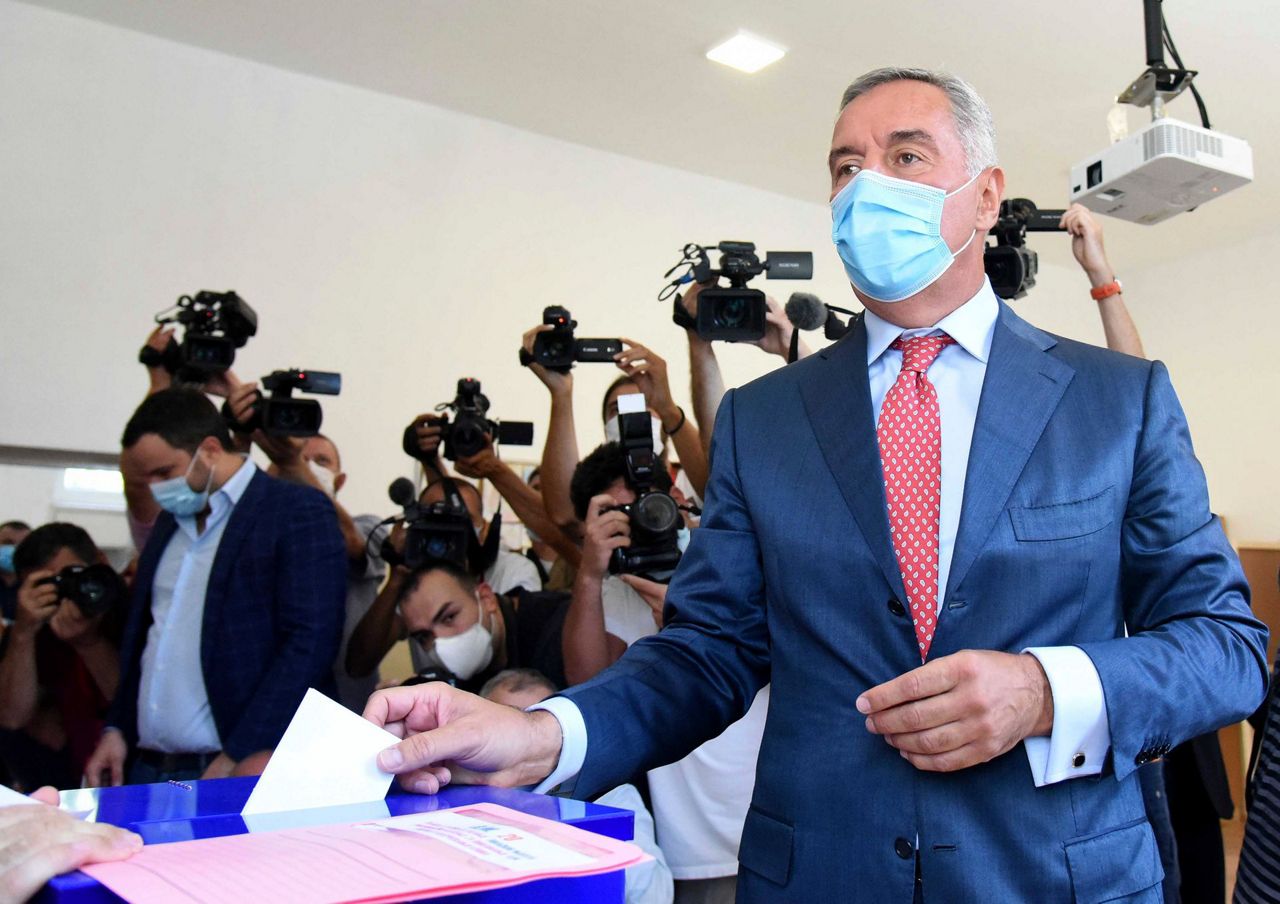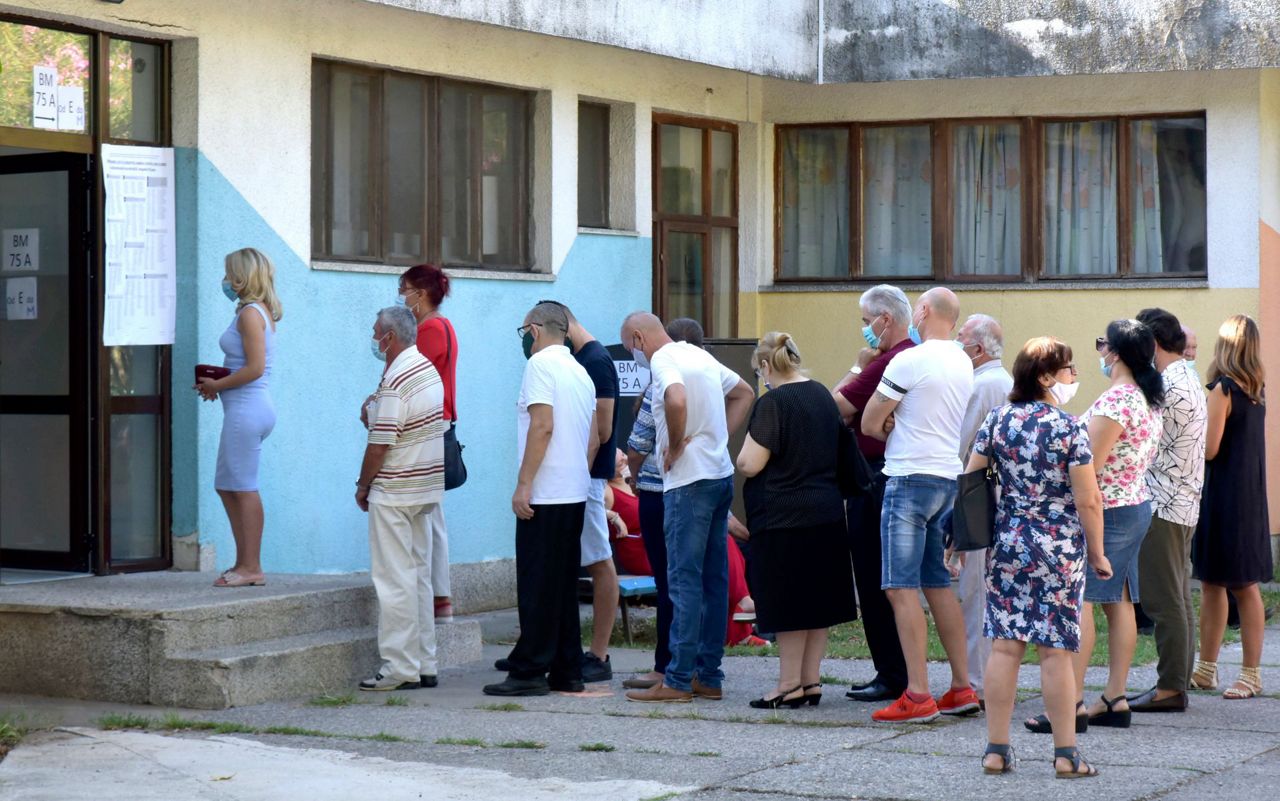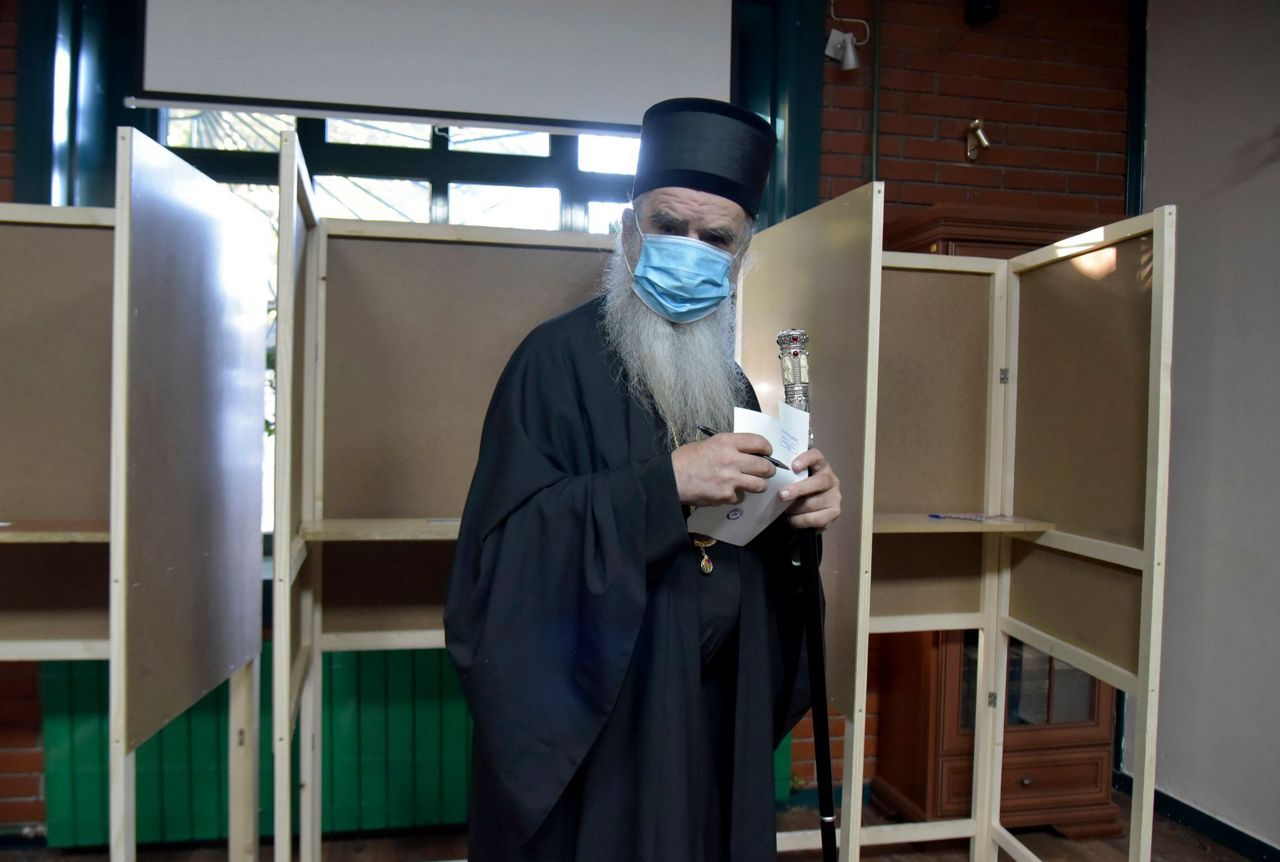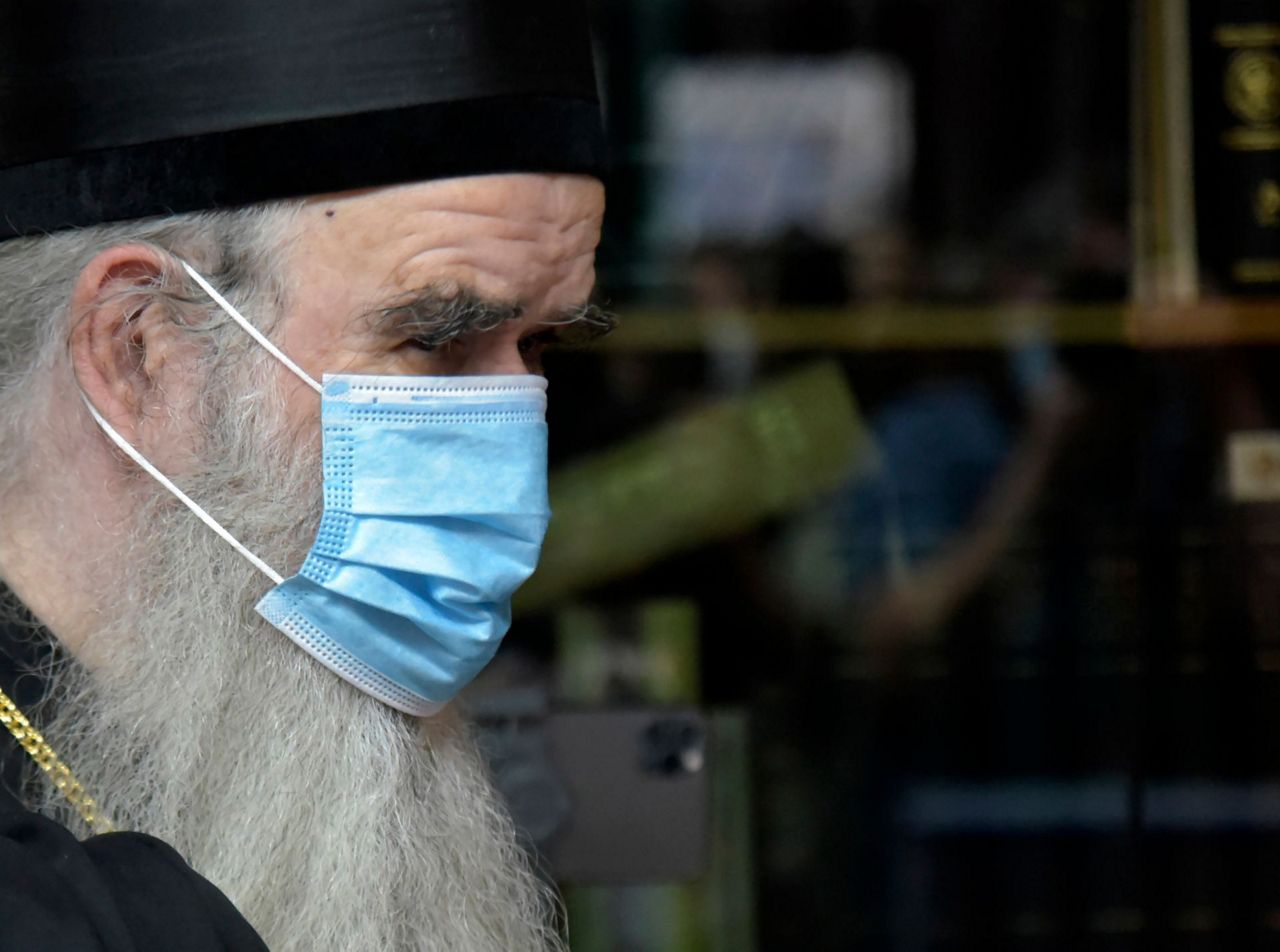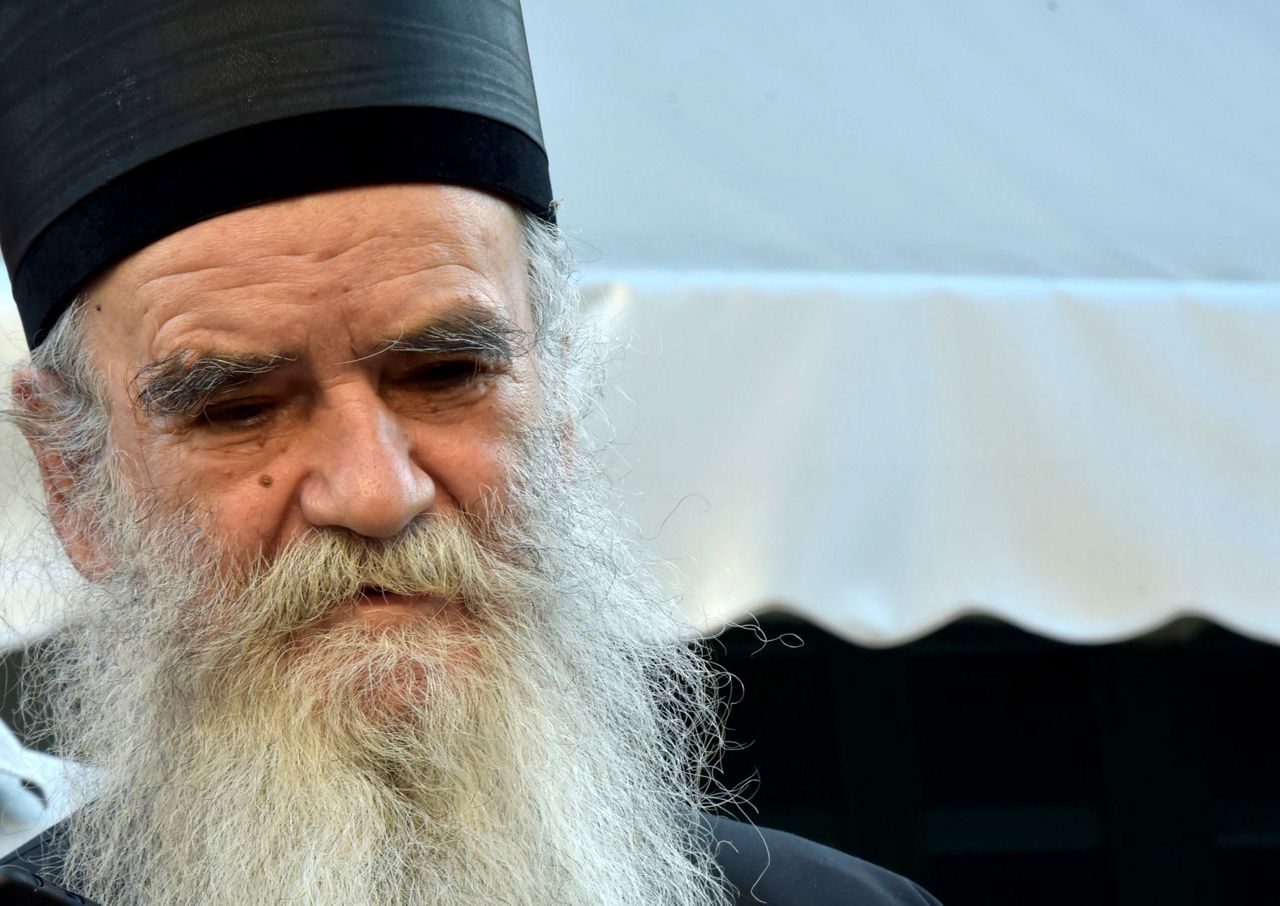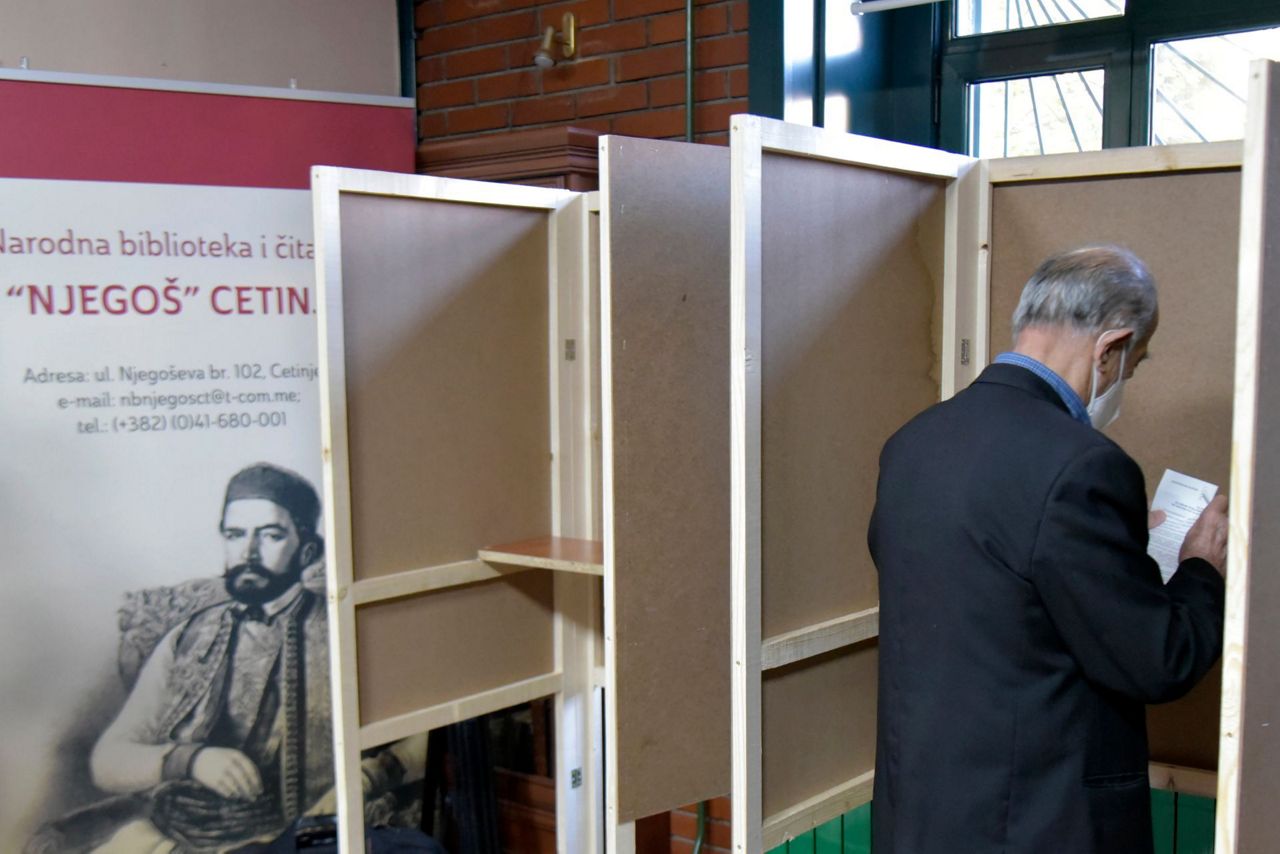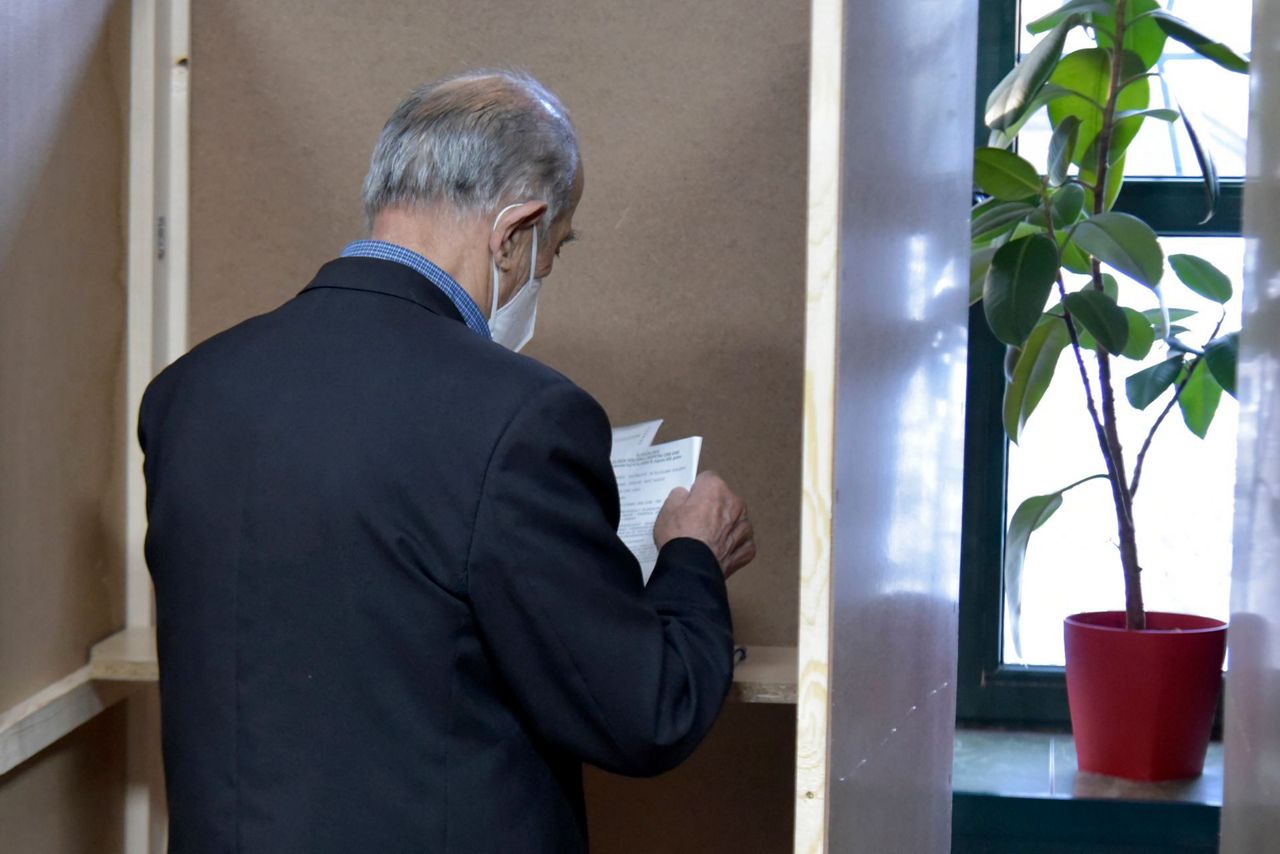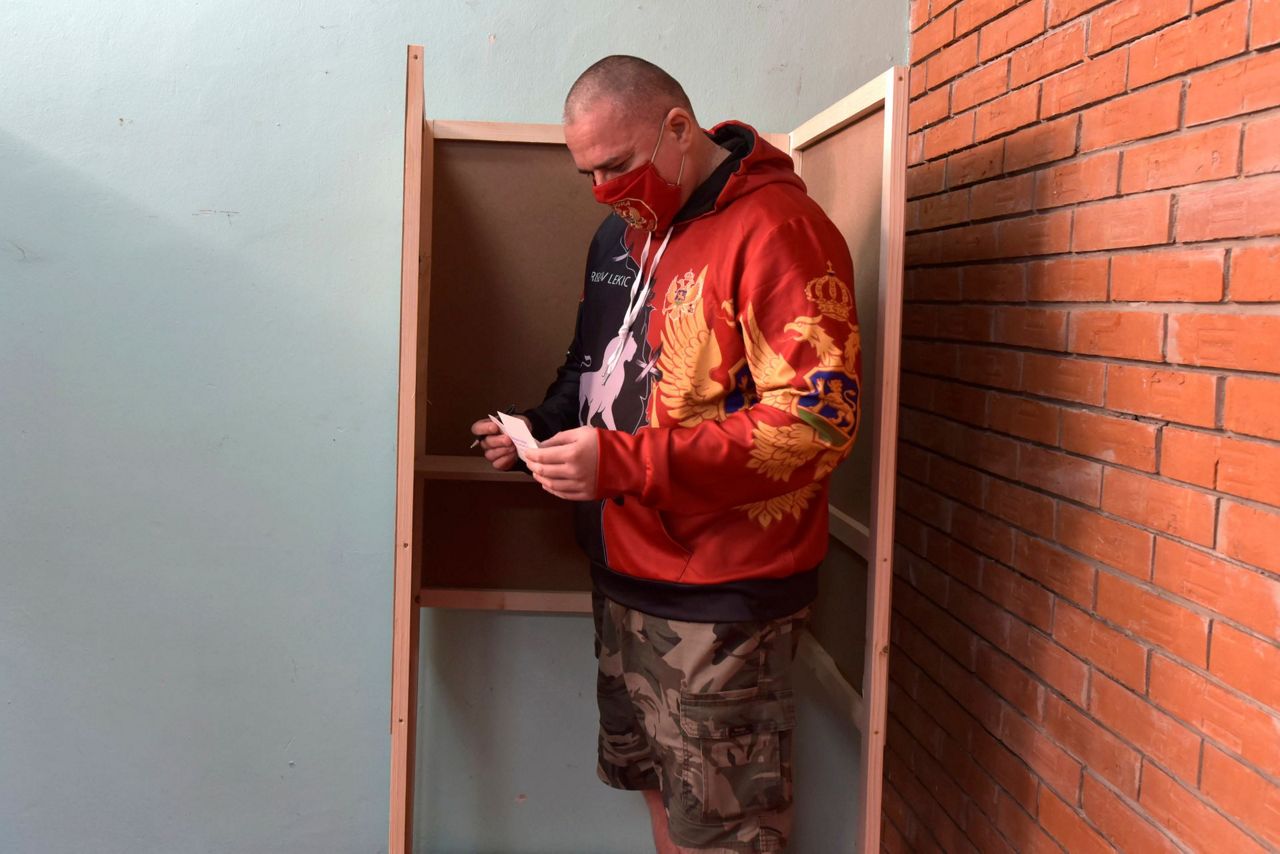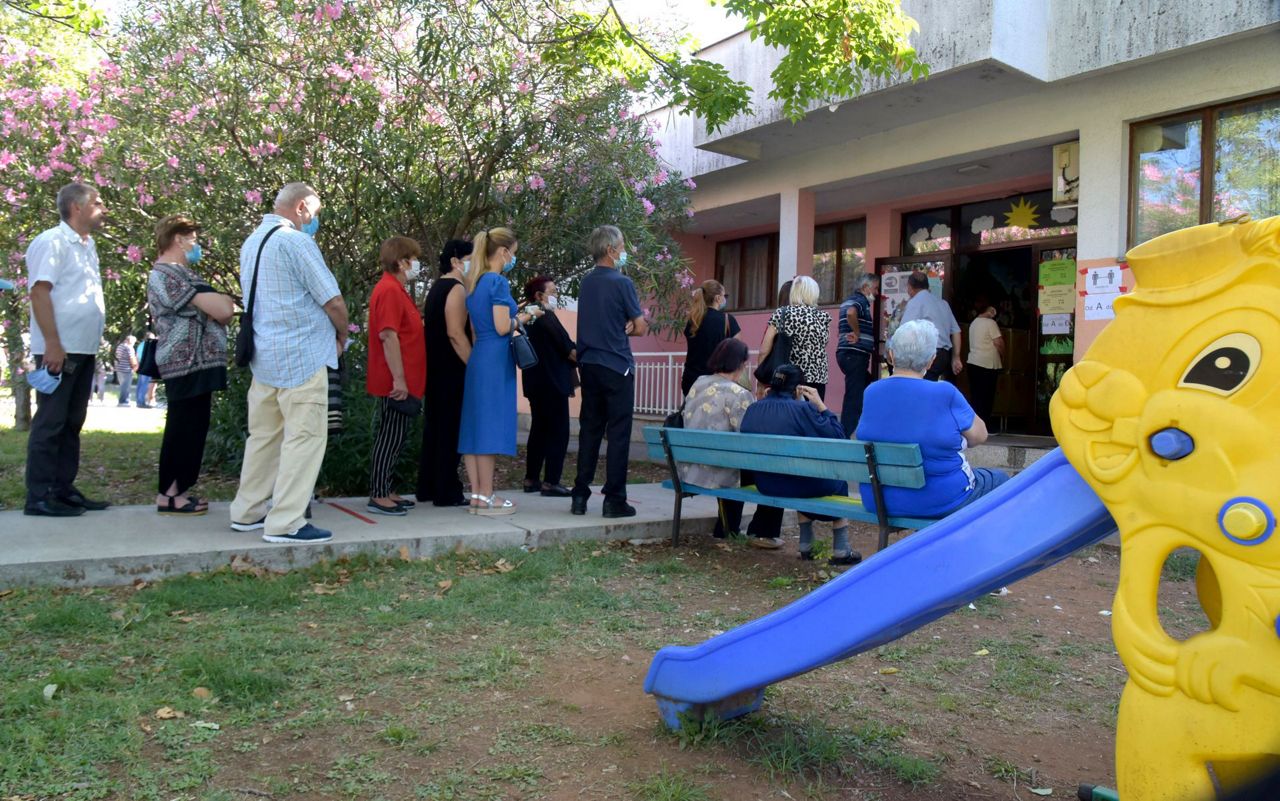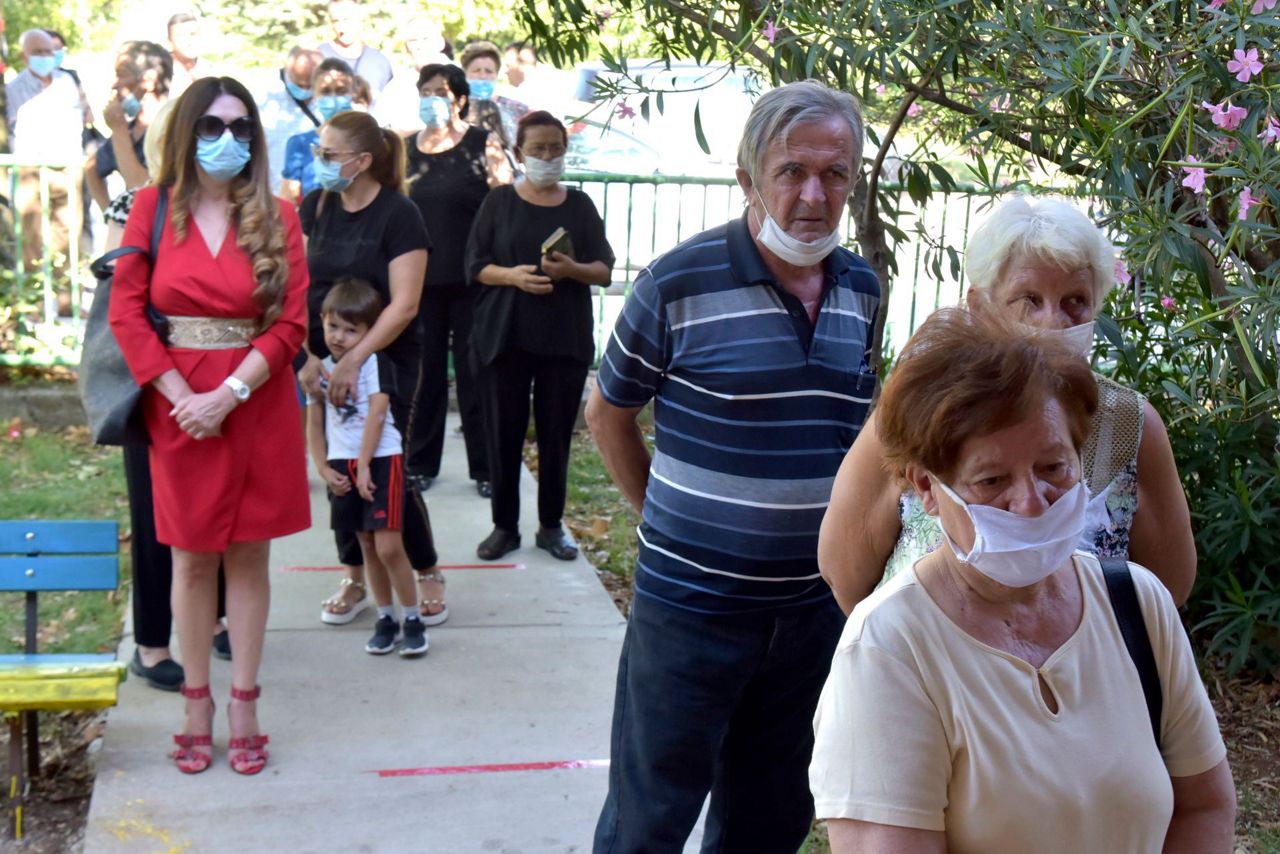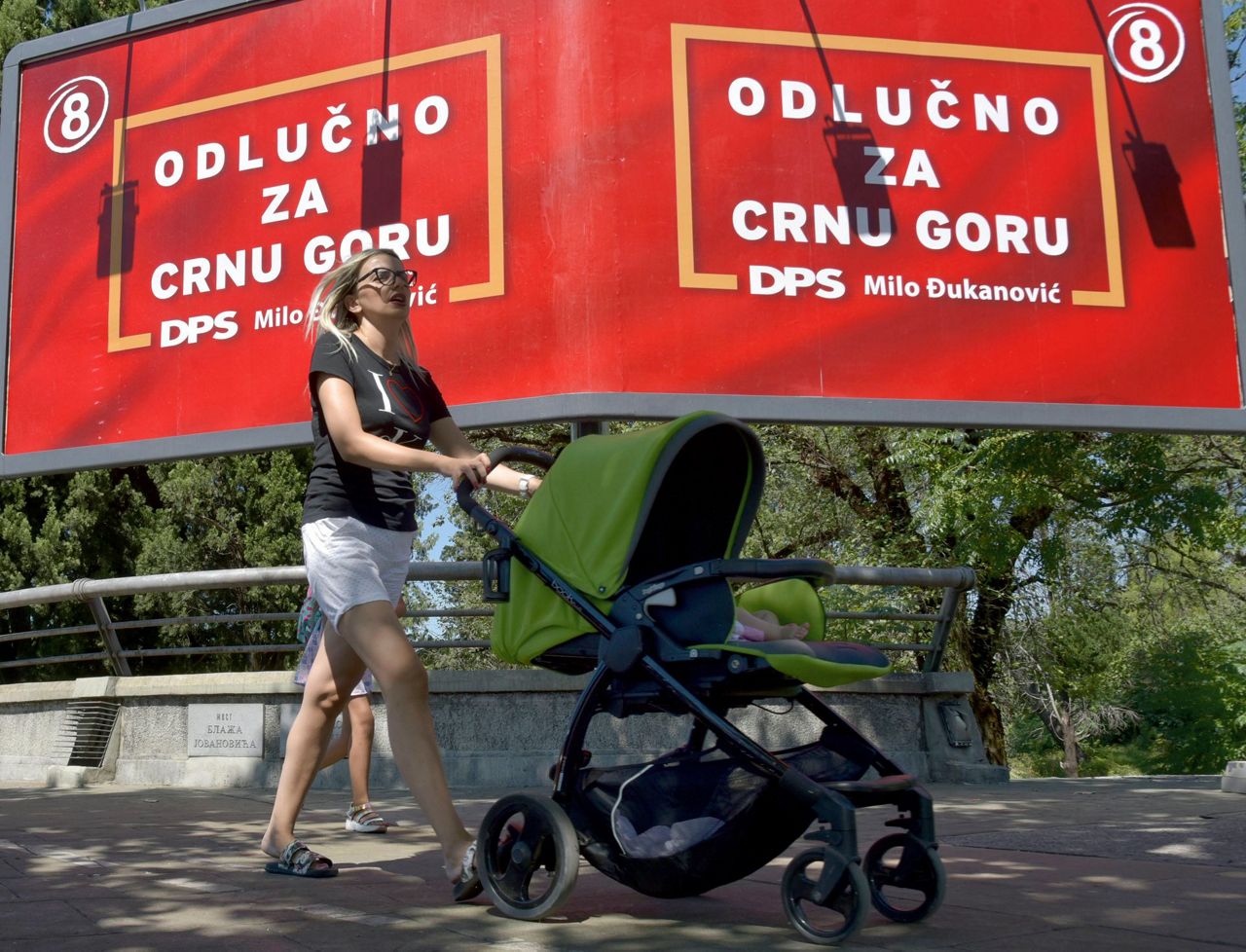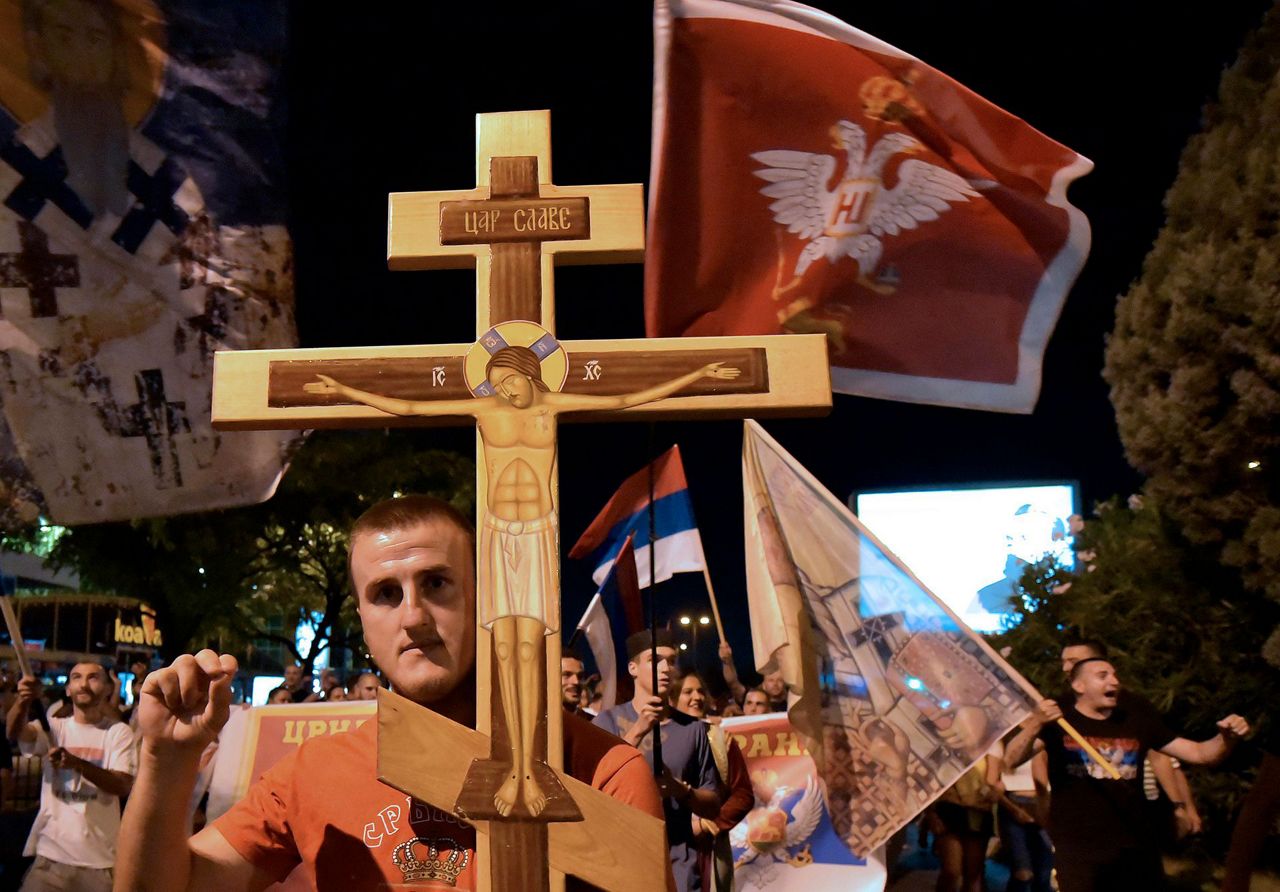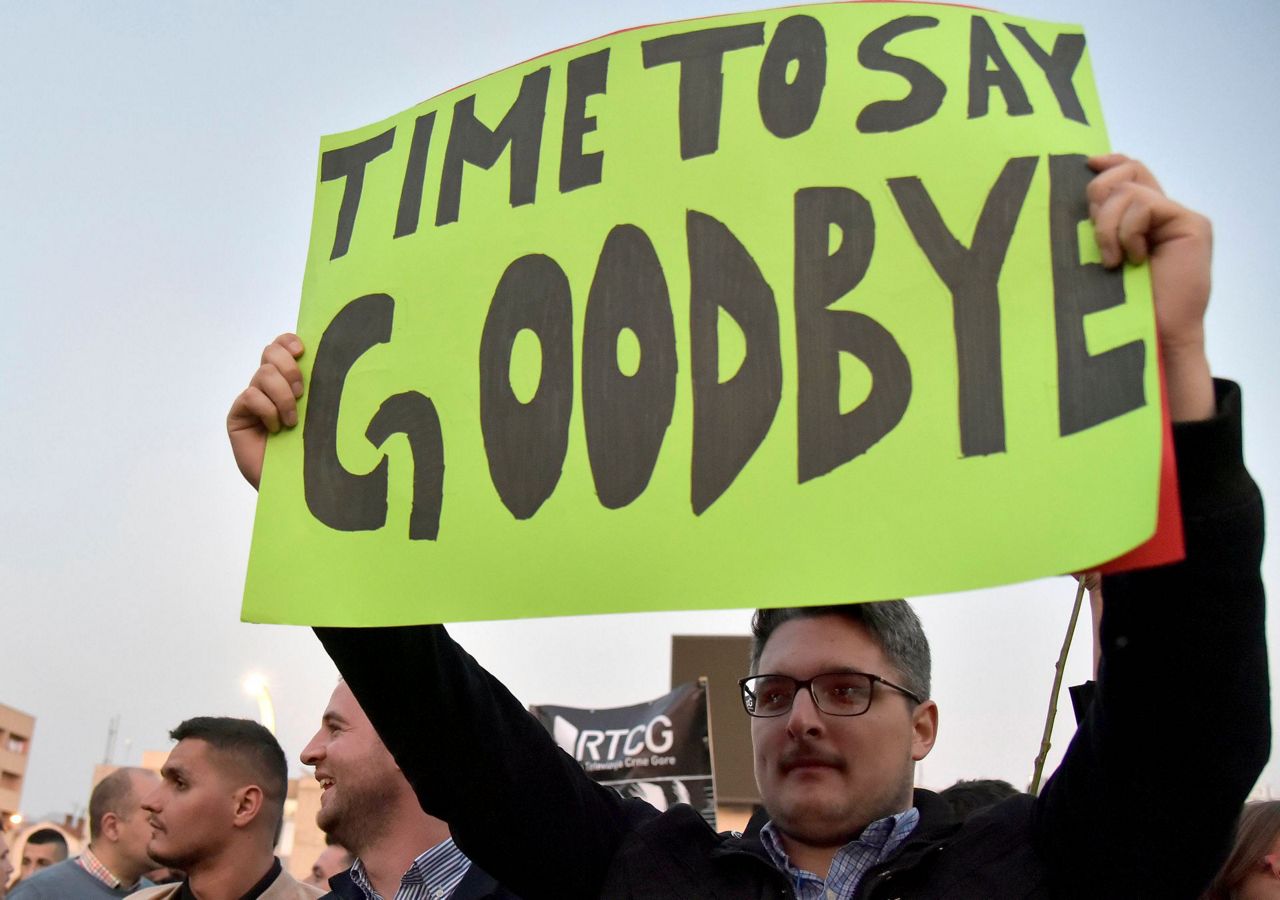PODGORICA, Montenegro (AP) — Montenegro's pro-Serb and Russian opposition groups claimed victory against the ruling pro-Western party in a tense parliamentary election that could see a change in the course of the small Balkan state.
The unofficial tally showed that the two camps were running-neck-and-neck, although they also indicate that the opposition has a bigger chance to form a coalition that will rule the tiny Adriatic country and unseat the Democratic Party of Socialists that has been in power for 30 years.
The election was marked by by a dispute over a law on religious rights that is staunchly opposed by the influential Serbian Orthodox Church. The issue has fueled divisions in the nation of 620,000 people that has defied its traditional Slavic allies Serbia and Russia to become independent in 2006 and join NATO in 2017.
Showing high interest in the election, some 75% of eligible 540,000 voters had cast their ballots by the closure of the polling stations, the state electoral commission said. Lines formed outside some polling stations on a very hot summer day.
“The regime has fallen,” said Zdravko Krivokapic, the leader of the opposition For the Future of Montenegro coalition after a vote count by the Center for Monitoring and Research, an independent group.
Claiming victory, Krivokapic said: “People of Montenegro, freedom has happened!”
An independent monitoring body said that with nearly all of the vote counted, the ruling party had about 35% percent while the main opposition group had about 33%, but with a greater potential to form a ruling coalition with allied opposition groups.
Complete official results were expected Monday.
Montenegrin president and DPS leader Milo Djukanovic said his party’s vote count suggests that DPS will have 30 members in the 81-seat parliament and together with its traditional political partners will garner 40 mandates.
Djukanovic said the party will wait for the final count and “unconditionally” respect the outcome.
“The struggle for the majority of parliamentary seats in the Montenegrin parliament is still going on,” said Djukanovic. “We will wait for the final count and the official results to see which of the two political sides will have the decisive 41st mandate.”
Djukanovic praised his party’s “historic” achievements for Montenegro and expressed hope that whoever forms the next government, Montenegro will remain on the European path and pursuing European values.
The ruling party led Montenegro to independence peacefully from much larger neighboring Serbia and into NATO and on the threshold of the European Union despite strong opposition from Russia.
Months of church-led protests against the property bill have raised tensions and fears of potential incidents during and after the election on Sunday.
Authorities are also thinking back to the previous election, in October 2016, when they said they thwarted a planned election-day coup orchestrated by two Russia military intelligence officers.
The Montenegrin president, known as the longest-serving European leader, has been a key Western ally in the efforts to push the volatile Balkan region toward Euro Atlantic integration.
The main opposition groups have backed the church-led protests against the religion law, seeking closer ties with Belgrade and Moscow.
The pro-Russian Serbian Orthodox Church has argued that the law allows the Montenegrin state to confiscate its property as a prelude to setting up a separate Montenegrin church. This has been denied by the government.
About one third of Montenegro's people declare themselves as Serbs, which makes relations with Serbia and the Serbian Orthodox Church a highly sensitive issue.
The coronavirus has ravaged Montenegro's tourism, which normally feeds the country's weak economy. The mountainous Adriatic Sea nation is blessed by stunning nature and golden beaches.
Copyright 2020 The Associated Press. All rights reserved. This material may not be published, broadcast, rewritten or redistributed without permission.



